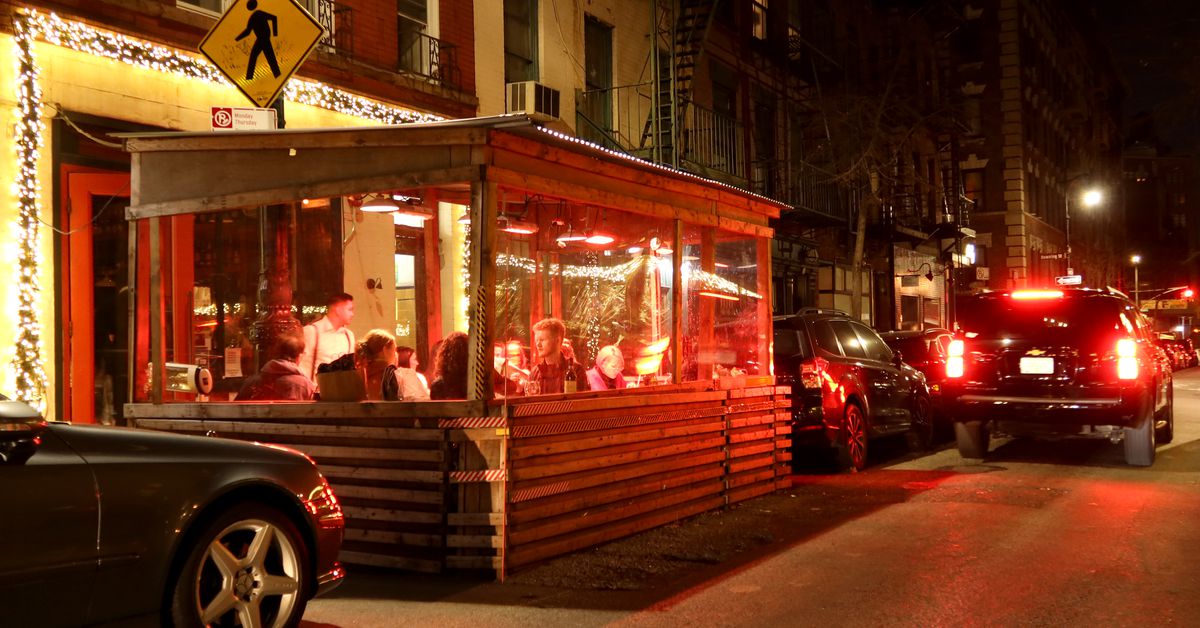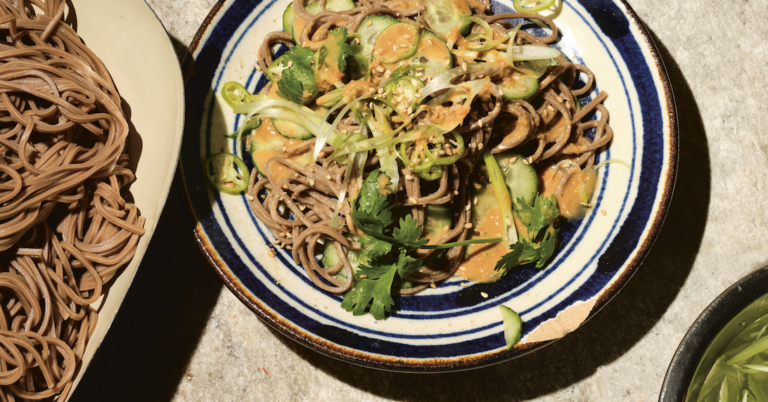At a Growing Number of NYC Restaurants and Bars, Hospitality Includes Overdose Prevention Kits
Step into any New York City restaurant or bar, and there is almost always a first aid kit tucked behind the counter. In the past two years or so, another life-saving tool has been increasingly present alongside it, as anti-overdose kits are making their way to places where New Yorkers eat and drink.
Previously, these harm reduction tools were more common at bars or nightclubs, but anti-overdose kits, which activists have long advocated, are increasingly popping up outside of nightlife spaces in cafes, restaurants, and even juice bars.
So-called harm reduction tools can be a catchall for both proactive and reactive measures: There are testing strips that can detect the presence of fentanyl in drugs such as cocaine when dipped into a liquid mixture sampling; naloxone, an injectable opioid reversal, or its nasal spray brand version, Narcan, is used in the case of an overdose. Venues like Ridgewood’s Nowadays, for example, have hosted trainings on how to administer naloxone properly.
:no_upscale()/cdn.vox-cdn.com/uploads/chorus_asset/file/23297985/1236913137.jpg)
The idea behind the kits, restaurant owners say, isn’t to condone drug use, nor is it meant to judge human behavior: It’s about acknowledging the reality of recreational drug use in New York City and the potentially positive role hospitality spots can have in protecting their communities, particularly in an industry where drug use is rampant.
For Chelsey Ann, marketing and events director of the Lower East Side Caribbean restaurant Las’ Lap, the reality is that restaurants are often the first stop on a big night out partying. “We want to keep our community safe, and we’re not going to naively pretend recreational drug use doesn’t happen in the neighborhood,” she says, likening the mindset to preaching abstinence instead of promoting safe sex. No one has had to ask for the kits in an emergency situation, but some customers have asked if they have testing strips to use later on in their night’s adventures.
More than 100,000 Americans died of a drug overdose in the 12-month period that ended in April 2021, according to data released by the Centers for Disease Control and Prevention. According to the New York Times, the record high currently surpasses gun and vehicular-related fatalities; many overdose deaths in the United States right now can be tied to fentanyl, the synthetic opioid that, while legal, can be lethal (especially because fentanyl can be clandestinely mixed in with other drugs).
Darryl Phillips, executive director of the ASAP Foundation — whose mission is to provide education around substance use to young people — told Eater that in the past two years, the nonprofit has donated harm reduction kits to burger spot Smashed NYC, Las’ Lap, influencer-friendly bar Short Stories, Japanese restaurant Shinsen, and popular pizzeria Scarr’s, among others. He says that over the past two years of the pandemic it’s been easier to get businesses to accept the foundation’s services.
“In addition to restaurants, we have [fentanyl testing strips] at barber shops, clothing stores, and galleries,” says Phillips. “But I know how common drug use is in restaurants.”
Since 2020, Las’ Lap has stocked the kits at a host stand. “It’s definitely something I would’ve advocated for but I didn’t even know that [the test strips] were an option,” says Ann.
“I don’t want it to seem like, ‘Oh, me, I should be glorified, I’m doing some great thing.’ It’s really just a simple thing we can do,” says Smashed owner Jamie Chester, who prefers to be addressed by his nickname Cee. Cee was friends with rapper A$AP Yams, who inspired the foundation after he passed away from an accidental overdose; the foundation asked Smashed to keep the kits at the restaurant. Cee plans to have testing strips at any subsequent locations he opens in the future.
Some New York City government officials are hoping to get more restaurants and bars thinking about harm reduction. For Ariel Palitz, the senior executive director for the NYC Office of Nightlife at the Mayor’s Office of Media and Entertainment (who also owned East Village nightlife spot Sutra Lounge for a decade), harm reduction in hospitality is at the top of her agenda. She spearheaded a program in partnership with the Department of Health and Mental Hygiene that launched last December, Narcan Behind Every Bar, which intends to make Narcan training more widespread, and to share information on how to receive a kit by mail. She wants to provide tools for nightlife workers, promoters, and patrons.
In February, councilmembers Chi Ossé and Keith Powers introduced a bill that would require the Department of Health and Mental Hygiene to provide New York City bars and nightclubs with naloxone and associated training: “This is a public health bill that will have an outsized positive impact on Black and brown New Yorkers,” Ossé wrote on Instagram. In late 2021, Ossé told Eater via Instagram DMs that he planned to push for legislation that provides free harm reduction kits for restaurants and delis as well. In a follow-up email, his team confirmed that plans to include restaurant and delis are still in the works.
“It’s really important to mention that drug use really is prevalent in all types of scenarios in peoples’ day lives, nightlifes, all types of professions and demographics,” Palitz says. “We’re always careful not to frame nightlife as the source of the liability of drug use. But we also see the nightlife community as a place where people can take care of each other. In the pandemic alone, the [industry] is taking a more compassionate, empathetic approach.”
Olivia Hu, co-owner of the roller disco-themed bar All Night Skate in Bed-Stuy, tells Eater the team has started stocking fentanyl testing strips purchased online, at their own cost, in their bathroom. The fentanyl strips are in addition to Narcan on-site, which the team has been trained to use. “Thank you neighbor for taking good care of your patrons,” one commenter responded on the team’s Instagram post, which read, “Safety is our #1 priority.”
:no_upscale()/cdn.vox-cdn.com/uploads/chorus_asset/file/23297819/image_from_ios.jpg)
For businesses that do not currently offer such services, some front-of-house workers tell Eater anonymously that they’ve taken on the responsibility of carrying Narcan and fentanyl test strips, in some cases paying for kits themselves. While naloxone can be obtained without a prescription, retail prices range, according to the New York City Department of Health and Mental Hygiene, between $45 and $150 at city pharmacies, depending on the method of administration. Many insurance companies also cover naloxone with little, if any, copay, and some community groups offer it for free. A quick online search for fentanyl test strips shows multipacks going for around $25 each on Amazon and DanceSafe, an organization focused on safety in nightlife.
Some business owners can be hesitant to stock their bars with these lifesaving resources, says Palitz, because they fear it creates the appearance to law enforcement that they condone drug use, despite the legality of the harm reduction kits. Perhaps relatedly, several businesses that Eater reached out to about the topic did not respond to requests for comment. The majority of the businesses Eater spoke with do not advertise their harm reduction kits on social media; some pointed out, however, that — even though it’s not an exact parallel comparison — the same could be said for their first aid kits. The ASAP Foundation posts on social media about which businesses stock its test strips. The overall hope, from those Eater spoke with, is that kits become so commonplace in New York that the advertising isn’t needed.
Rachel Clark, DanceSafe’s education manager, told Eater that her advice for establishments handing out harm reduction tools is to keep a binder on hand with information that includes drug-checking laws in New York, the CDC’s recommendation endorsing use of fentanyl strips, and statistics around opioid overdoses involving fentanyl — should law enforcement question the establishment.
Palitz, for her part, hopes that the new campaign her office has worked on will help to dispel lingering stigma surrounding harm reduction and expand safe-use distribution throughout the city.
Amid a growing number of harm reduction programs in NYC, hospitality spots are once again proving that they are more than just spaces to imbibe or eat — as they have throughout the pandemic, when pivoting to pantries and other types of mutual aid operations. These businesses can also be vital community hubs.
“Neighborhoods like ours have been under-taken care of during the pandemic,” says Ann of Las’ Lap. “You see people all the time on the streets who are at risk of overdose. The more businesses in the area offering a smart service like this the better.”






